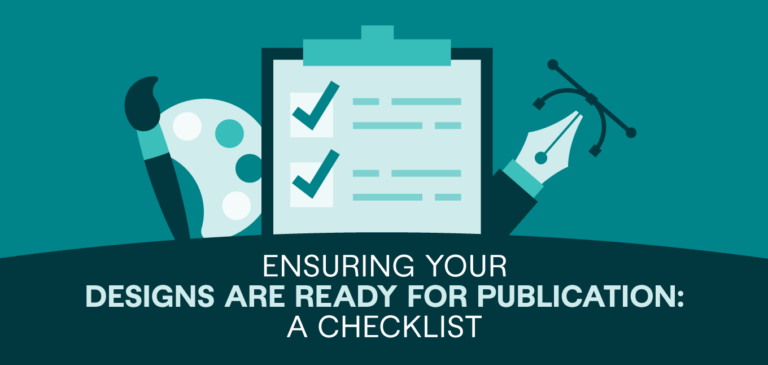What is a marketing funnel?
A marketing funnel is a strategic business model that guides potential customers through different stages of their buyer’s journey. It takes them from initial awareness of your brand to making a purchase decision.
Sometimes called a sales funnel, the marketing funnel assumes customers don’t just make purchasing decisions spontaneously. The philosophy behind it is that conversions result from consistent exposure to a brand over time. The funnel clearly visualizes the customer’s path as they interact with your content and marketing efforts.
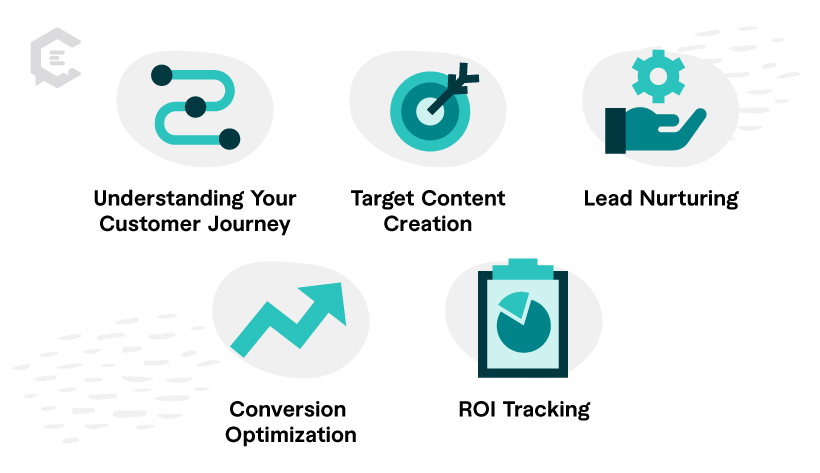
Why are marketing funnels so Important?
Creating a marketing funnel for your business comes with several significant benefits:
- Understanding Your Customer Journey: Visualizing the marketing funnel stages identifies areas for improvement and optimization. Which helps marketers strategize to meet customer needs at each stage.
- Targeted Content Creation: Each stage requires different content types to address those needs. A funnel structure ensures you deliver the right message to the right audience at the right time.
- Lead Nurturing: As prospects move through the funnel, businesses can use content to nurture leads, build trust, and address concerns. That engagement increases the likelihood of a purchase.
- Conversion Optimization: Marketers can identify bottlenecks and optimize conversion rates by understanding where prospects drop off in the funnel.
- ROI Tracking: Marketing funnels can measure the effectiveness of your strategic efforts. Through their data, you can identify which channels perform best and allocate your resources accordingly.
How does a marketing funnel work?
Marketing funnels are divided into three distinct sections.
- Top-of-the-funnel
- Middle-of-the-funnel
- Bottom-of-the-funnel
The goal is to guide buyers from the top of the funnel, where potential buyers are getting to know your brand, to the bottom, where qualified leads purchase from you.
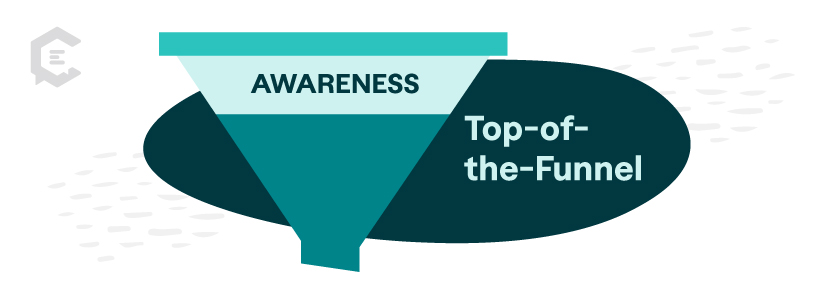
Top-of-the-funnel: Awareness
A marketing funnel starts wide at the top. It wants to catch as many potential buyers as possible. Top-of-the-funnel marketing (ToFu) is all about increasing brand awareness and trust.
You’re not trying to sell people on your products at this point. You just want a nice introduction followed by some brand recognition.
Here are several options for ToFu content marketing:
- Broad blog posts
- Website copy
- Ads
- Articles
- General social media posts
- Infographics
- Landing pages
- Motion graphics
- Press releases
- Overview of products and services
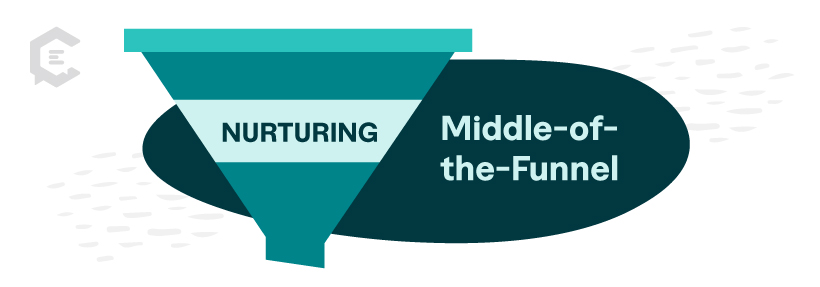
Middle-of-the-funnel: Nurturing
The funnel starts to narrow as qualified buyers reach the middle-of-the-funnel (MoFu). This stage is about supporting potential buyers as they see if your product or service meets their needs.
This is where buyers might also research your competition and look for alternatives. This is your opportunity to explain why you’re the best option.
Here are several options for MoFu content marketing:
- Customer stories
- Case studies
- Email campaigns
- eBooks
- Guides
- Interviews
- Detailed product and service descriptions
- Targeted social media posts
- Targeted ad campaigns
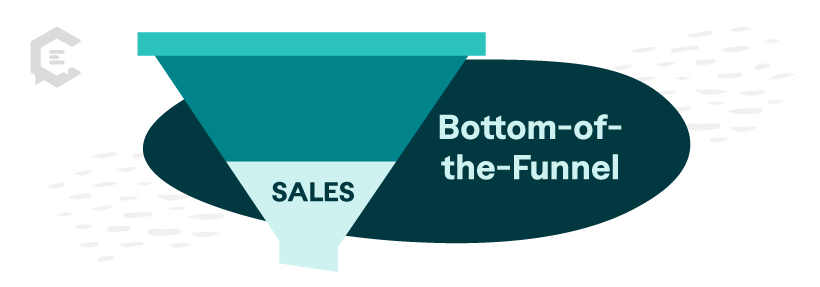
Bottom-of-the-funnel sales
The funnel narrows even further as qualified buyers decide if your product is for them. At this stage, they just need that last nudge to make a purchase. Bottom-of-the-funnel (BoFu) marketing is about validating your buyers’ decision to purchase from you and ensuring their satisfaction.
Happy buyers are repeat buyers, and they’re more likely to send other buyers your way.
Here are a few options for BoFu content marketing:
- Sales scripts
- Sales page copy
- Order confirmation email
- Follow-up communication after the sale
How content marketing drives today’s marketing funnels
Traditional advertising has become less effective as younger generations actively avoid ads through ad blockers and ad-free subscription services. And they’re also actively seeking content online.
Creating a wide range of high-quality content adds so much value to your marketing funnel:
- Content boosts your website’s search engine rank, which helps buyers find you.
- Consistently publishing new content gets you in front of more potential buyers.
- Knowledgeable content establishes you as an expert in your field.
- Objective content helps you build trust with your prospective buyers over time.
- Technical content shows buyers why you’re a better match than your competitors.
An example of a marketing funnel
Here’s a good example:
- ToFu: You see a 25 percent OFF EVERYTHING sign in a retail shop window. That sign casts a broad net, inviting everyone who walks by into the shop.
- MoFu: Once you’re inside, the store provides more information to help you decide. You’ll see size guides and mannequins modeling the products, and you can try them to make sure they’re a good fit.
- BoFu: You’re at the register, hoping you’ve made the right decision. You see a small 30-day return policy sign. Great! If you decide later that you don’t love your new shoes, you can return them. That makes you feel better about buying them today. Then the cashier comments, “Those shoes are so hot right now.” Now you feel great about your buying decision!
Marketing Funnel Next Steps
Marketing funnels are essential for businesses to guide customers through their journey. That guidance can foster customer relationships and contribute to overall marketing success. And nothing drives modern customers through a marketing funnel quite like high-quality content.
If you’re looking to level up your content or need effective funnel marketing strategies, we’re here to help. Talk to a content specialist at ClearVoice today and we’ll get you started.



